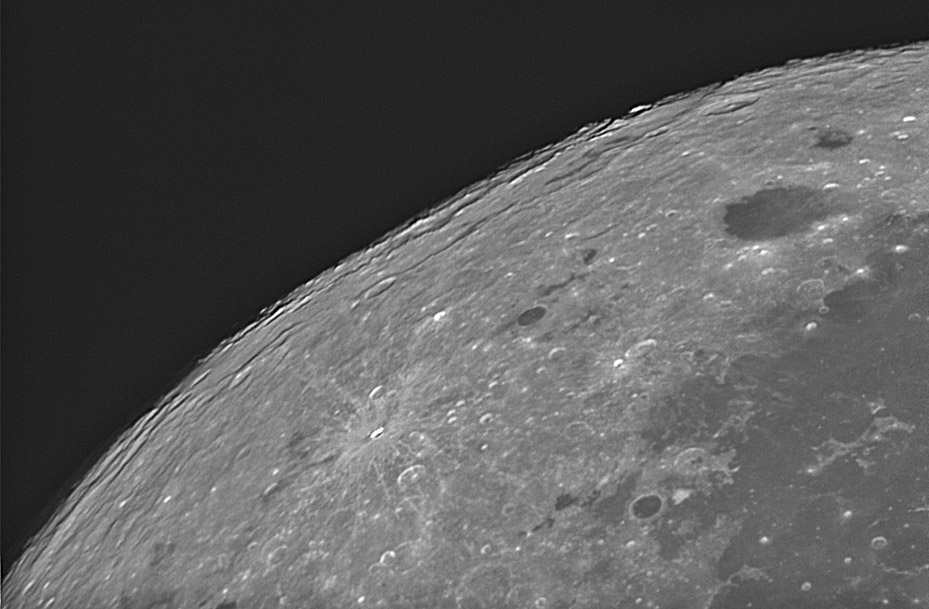Difference between revisions of "September 18, 2008"
(Created page with "__NOTOC__ =Overlooked= <!-- ws:start:WikiTextHeadingRule:1:<h1> --> <!-- ws:start:WikiTextLocalImageRule:7:<img src="/file/view/LPOD-Sep18-08.jpg/38633588/LPOD-S...") |
|||
| Line 15: | Line 15: | ||
Rükl plate VII<br /> | Rükl plate VII<br /> | ||
<br /> | <br /> | ||
| + | <p><b>Yesterday's LPOD:</b> [[September 17, 2008|A Pre-Mare Moon]] </p> | ||
| + | <p><b>Tomorrow's LPOD:</b> [[September 19, 2008|Bright Mapping]] </p> | ||
<hr /> | <hr /> | ||
| − | |||
| − | |||
Revision as of 21:26, 4 February 2015
Overlooked

south to left image by Bret Dahl, Plano, TX
Bret's recent image makes it difficult to understand how the Orientale basin could have been so overlooked for hundreds of years. Previously I have described its history of discovery, and Baum and Whitaker recently did a more thorough job, but as a capsule summary, it was overlooked by nearly all major observers. And yet, with this lighting and libration it is dramatically noticeable. I wonder if most prior observers didn't pay much attention to the limb, because there was so much better placed detail nearer the center of the disk that was not well documented? What observers should have noticed and commented on was the two or three large arcuate mountain lines - Schroter did, and he named them the Cordillera and Rook mountains. The geologist Shaler did guess that these mountains were the rim of a large farside basin, but no one read his 1874 report, and so Orientale was overlooked again until 1938, but even then was hardly known or described afterwards. Apparently some things are too large to be noticed!
Chuck Wood
Technical Details
2008-09-14, 21:54:04 UTC -5 hours (Central – Daylight Savings). 10"LX200GPS; AP: 250mm; FL: 2500mm; @f6.3 + SKYnyx2-1M; 582 frames.
Related Links
Rükl plate VII
Yesterday's LPOD: A Pre-Mare Moon
Tomorrow's LPOD: Bright Mapping



